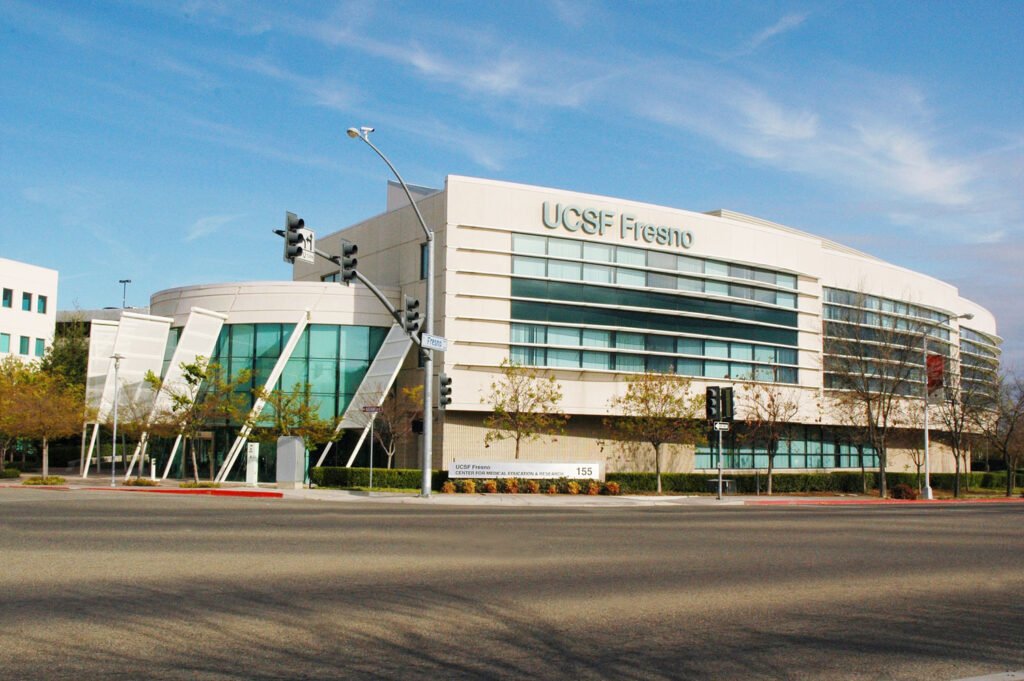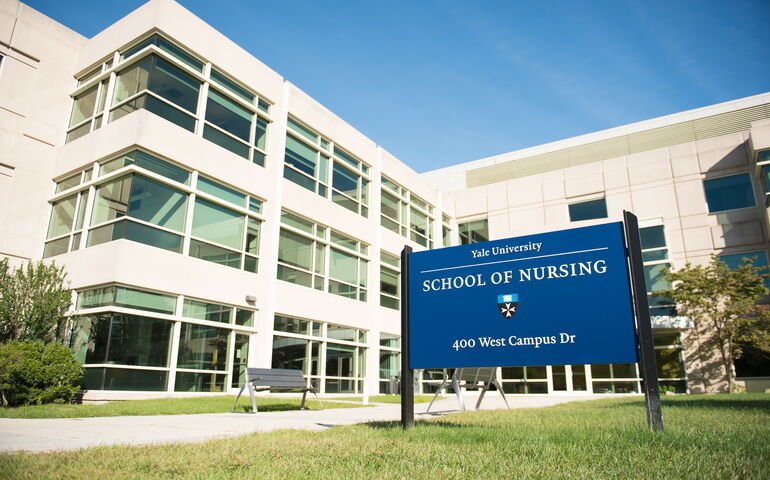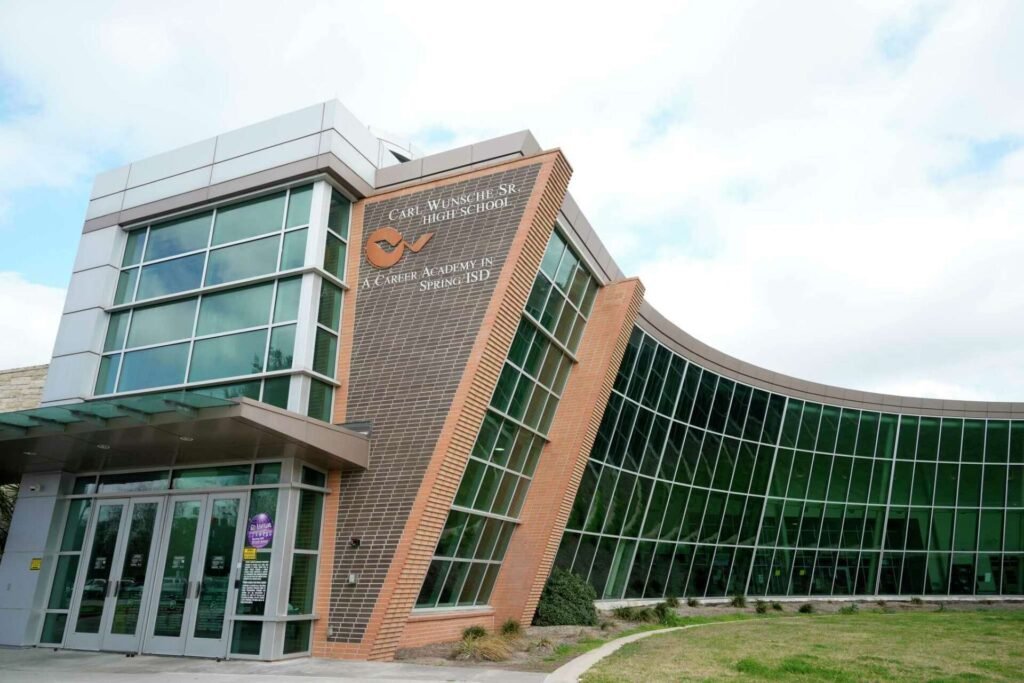Nursing has always been the backbone of healthcare, but in today’s world, its importance has grown more than ever before. With an aging population, rapid medical advancements, and ongoing challenges such as global health crises, the demand for well-trained, compassionate, and highly skilled nurses continues to rise. In fact, the U.S. Bureau of Labor Statistics projects that employment for registered nurses and advanced practice nurses will grow significantly faster than the average for most professions over the next decade. This makes nursing not only a rewarding career but also a stable and future-proof one.
Choosing the right nursing school is a crucial first step toward success. Top nursing schools in the U.S. do more than just provide classroom education; they prepare students to take on leadership roles in hospitals, community health centers, research labs, and even international organizations. These institutions offer rigorous clinical training, access to state-of-the-art simulation labs, and partnerships with world-class medical centers that ensure students gain real-world experience before entering the workforce.
Also Read: Top 6 Best Law Schools in the US
Beyond clinical excellence, many of these schools are deeply involved in cutting-edge research and healthcare policy, empowering graduates to shape the future of patient care, influence legislation, and improve health systems globally. Whether your goal is to become a nurse practitioner, researcher, educator, or policy leader, the right program can set the foundation for a career that is both impactful and fulfilling.
In this guide, we’ll explore the best nursing schools in the U.S. and highlight what makes each institution a leader in the field.
Best Nursing Schools in the US
1. Johns Hopkins University – School of Nursing

Founded: 1889
Programs Offered: BSN, MSN, DNP, PhD
Tuition: ~$63,000/year
NCLEX Pass Rate: ~95%
Johns Hopkins University School of Nursing consistently ranks among the very best nursing schools in the United States—and often holds the #1 spot in U.S. News & World Report for its master’s programs. With a history spanning more than 130 years, the school has built a global reputation for advancing nursing education, clinical practice, and healthcare research.
What makes Johns Hopkins distinctive is its strong emphasis on research-driven learning combined with hands-on clinical excellence. Students benefit from the school’s close connection to the world-renowned Johns Hopkins Hospital, giving them direct access to one of the top medical institutions in the country. From day one, nursing students are immersed in real-world healthcare challenges, preparing them to step into leadership roles upon graduation.
The school also has a powerful focus on global health and advanced practice nursing. Students and faculty frequently engage in international projects, working to improve health outcomes in underserved communities around the world. This global perspective ensures that graduates are not only exceptional clinicians but also leaders capable of shaping health policy and systems worldwide.
Best For: Students who want a career that blends cutting-edge research, advanced clinical practice, and leadership in global health.
2. University of Pennsylvania – School of Nursing

Founded: 1885
Tuition: ~$65,000/year
NCLEX Pass Rate: ~94%
The University of Pennsylvania School of Nursing (Penn Nursing) is one of the few Ivy League institutions dedicated to nursing education, making it both highly selective and incredibly prestigious. Since its founding in the late 19th century, Penn Nursing has been at the forefront of advancing the nursing profession through rigorous academics, groundbreaking research, and leadership development.
One of Penn’s greatest strengths lies in its dual-degree opportunities, allowing nursing students to combine their studies with fields such as business (MBA), public health (MPH), and healthcare management. This interdisciplinary focus prepares graduates not just as clinicians, but as innovators, policymakers, and healthcare leaders capable of transforming systems of care.
Penn Nursing also boasts a powerful global network. Students have access to international study and practice opportunities, preparing them to address healthcare challenges on a worldwide scale. Its strong ties to hospitals and research centers in Philadelphia give students ample opportunities for hands-on clinical training while being supported by world-class faculty.
The school is also home to some of the most influential voices in nursing research and policy, including alumna Linda Aiken, a renowned nurse researcher whose work has shaped healthcare workforce policies worldwide. This tradition of scholarship ensures that students are learning from pioneers who actively shape the future of nursing and healthcare delivery.
Best For: Aspiring nurse leaders, policymakers, and educators who want to combine clinical expertise with leadership and academic excellence while benefiting from Ivy League prestige.
3. Duke University – School of Nursing

Tuition: ~$60,000/year
NCLEX Pass Rate: ~96%
The Duke University School of Nursing is widely regarded as one of the premier nursing schools in the nation, offering students a blend of cutting-edge technology, interdisciplinary training, and strong clinical opportunities. Located in Durham, North Carolina, Duke benefits from being closely affiliated with the Duke University Health System, one of the most respected academic medical centers in the country.
One of Duke Nursing’s standout features is its state-of-the-art simulation labs, where students can safely practice critical skills before transitioning into real-world settings. The school is also nationally recognized for its Nurse Anesthesia program, Nursing Informatics, and Doctor of Nursing Practice (DNP) degrees. These programs attract students who are eager to push the boundaries of modern nursing and engage with advanced practice and leadership roles.
A unique strength of Duke is its emphasis on interdisciplinary collaboration. Nursing students often work alongside peers from medicine, pharmacy, and public health, giving them a broader perspective on patient care. This integrated approach ensures graduates are prepared to function as part of complex healthcare teams, making them highly sought after in hospitals, research centers, and policy settings.
Duke also places a strong emphasis on research and innovation, with faculty leading studies on topics ranging from health disparities to the use of technology in improving patient outcomes. Combined with its reputation for excellence and a consistently high NCLEX pass rate of ~96%, Duke prepares graduates to become leaders in clinical practice, technology integration, and health system improvement.
Best For: Students passionate about advanced practice, nursing technology, and leadership who want to train in one of the most innovative and interdisciplinary healthcare environments in the U.S.
Also Read: Best Medical Schools in the US
4. University of California, San Francisco (UCSF) – School of Nursing

Tuition: ~$58,000/year (in-state)
Programs: MSN, DNP, PhD (graduate-level only)
The UCSF School of Nursing stands out as one of the nation’s most prestigious public nursing schools, consistently ranked among the top programs in the United States. Located in the heart of San Francisco, UCSF is part of the world-renowned University of California health system, giving students unparalleled access to clinical sites, research opportunities, and public health initiatives.
One of UCSF’s most distinctive features is its graduate-level focus. Unlike many other nursing schools, UCSF does not offer a BSN program; instead, it is fully committed to advanced practice nursing, leadership, and research training. This makes it an excellent choice for students who are already grounded in nursing basics and are ready to take on specialized roles such as nurse practitioner, nurse midwife, clinical nurse leader, or healthcare policy expert.
UCSF is particularly well known for its strengths in public health, community health, midwifery, and advanced practice nursing pathways. Its emphasis on serving diverse populations and tackling healthcare disparities makes it an ideal school for students who are passionate about combining clinical expertise with social impact.
The school is also deeply invested in healthcare policy and leadership development, preparing graduates to take on roles that shape the future of nursing both locally and globally. Faculty at UCSF are pioneers in research on health equity, primary care, and maternal-child health, giving students the opportunity to learn from some of the most influential voices in the field.
With its West Coast location, UCSF also provides access to tech-driven healthcare innovation, reflecting the Bay Area’s reputation for forward-thinking solutions. This combination of public health emphasis and research leadership positions UCSF-trained nurses to make a significant impact across practice, policy, and education.
Best For: Students aiming at leadership roles in healthcare policy, public health, and advanced practice nursing, particularly those passionate about addressing health disparities and innovating within community-based care.
5. University of Michigan – School of Nursing

Tuition: ~$52,000/year
Programs: BSN, MSN, DNP, PhD
NCLEX Pass Rate: ~93%
The University of Michigan School of Nursing (UMSN) in Ann Arbor is widely regarded as one of the most well-rounded nursing schools in the United States, combining rigorous academics with hands-on clinical training. As part of a top-tier research university, UMSN provides students with access to an incredible range of clinical partnerships, interdisciplinary collaborations, and state-of-the-art resources.
One of the school’s key strengths lies in its Doctor of Nursing Practice (DNP) program, consistently ranked among the best in the country. The program emphasizes leadership in clinical practice, preparing students to take on advanced roles as nurse practitioners, nurse anesthetists, and healthcare executives. At the same time, UMSN’s commitment to cutting-edge nursing research ensures that students benefit from exposure to pioneering studies in areas like chronic illness management, health disparities, and patient safety innovation.
Michigan’s strong ties with major healthcare systems—including Michigan Medicine, one of the largest and most advanced academic health centers in the nation—provide students with invaluable opportunities for clinical rotations and real-world experience. This balance between research excellence and practical training ensures graduates are prepared for both advanced practice and leadership roles.
The alumni network of UMSN is also a significant advantage, with graduates going on to become leaders in nursing associations, public health initiatives, and global healthcare organizations. This legacy of leadership makes Michigan a top choice for students who want to make a broad impact in nursing, whether in practice, research, or policy.
Beyond academics, Ann Arbor itself offers a supportive, student-focused community with access to cultural, academic, and healthcare resources, making it an attractive environment for students pursuing intensive study.
Best For: Students seeking a balance of research and hands-on training, with aspirations for leadership in nursing practice, education, or public health.
6. New York University (NYU) – Rory Meyers College of Nursing

Location: New York, NY
Tuition: ~$62,000/year
Programs: BSN, MSN, DNP, PhD
NCLEX Pass Rate: ~91%
The NYU Rory Meyers College of Nursing is one of the largest private nursing schools in the United States and a powerhouse in preparing nurses for leadership roles in urban and global healthcare. Located in the heart of New York City, students gain unparalleled access to world-class hospitals, research institutions, and international health organizations.
NYU is particularly strong in gerontology and aging research, a field that is becoming increasingly important as the U.S. population grows older. The school also emphasizes global health opportunities, allowing students to participate in study-abroad programs, international clinical rotations, and cross-border collaborations that expand their perspective on healthcare systems worldwide.
Students at Rory Meyers benefit from NYC’s diverse healthcare landscape, which provides exposure to a wide range of patient populations, complex cases, and public health challenges. Beyond clinical excellence, NYU fosters innovation and leadership, ensuring graduates are well-prepared for careers in practice, policy, and academia.
Best For: Students who want the energy and diversity of NYC healthcare, with opportunities to expand into global health and international nursing leadership.
7. University of Washington – School of Nursing

Location: Seattle, WA
Tuition: ~$40,000/year (in-state)
Programs: BSN, MSN, DNP, PhD
NCLEX Pass Rate: ~94%
The University of Washington School of Nursing is a top-ranked public nursing institution known for its commitment to community health, rural healthcare, and health equity. Situated in Seattle, UW has built a reputation for producing nurse leaders who serve not only in advanced clinical roles but also as researchers and policy advocates.
UW’s programs emphasize community engagement, preparing students to work with underserved populations in both urban and rural settings. Its midwifery and nurse practitioner tracks are nationally respected, with graduates often serving as key providers in primary care and maternal health.
In addition to practice, UW is home to cutting-edge nursing research in health disparities, aging, and chronic illness management. Students benefit from the school’s partnerships with public health organizations, hospitals, and rural clinics, gaining diverse hands-on training experiences.
Best For: Students passionate about community-based care, public health, and advancing equity in healthcare delivery, especially in underserved regions.
8. Yale University – School of Nursing

Location: New Haven, CT
Tuition: ~$66,000/year
Programs: MSN, DNP, PhD
NCLEX Pass Rate: ~93%
The Yale School of Nursing (YSN) stands out for combining Ivy League prestige with innovation in nursing education. Yale pioneered the direct-entry MSN program, allowing students without a nursing background to transition into advanced practice nursing. This unique pathway attracts career changers as well as ambitious students seeking accelerated leadership roles in healthcare.
Yale offers rigorous training in nurse practitioner specialties, midwifery, and advanced clinical practice, supported by strong research initiatives in health equity, global health, and patient-centered care. Its small class sizes ensure personalized mentorship from world-renowned faculty and access to Yale’s extensive professional and alumni networks.
Graduates of YSN often go on to become nurse leaders, educators, and healthcare innovators, shaping policy and practice at the national and global level.
Best For: Students who want Ivy League training, advanced clinical preparation, and opportunities to lead in nursing practice and education.
Key Factors to Consider When Choosing a Nursing School
When comparing the top nursing schools in the US, it’s important to look beyond rankings and consider what fits your personal and professional goals. Here are the most critical factors:
- Accreditation (CCNE or ACEN): Accreditation ensures that the nursing program meets national standards and qualifies you to sit for the NCLEX. Always double-check that your chosen school is accredited.
- NCLEX Pass Rates: A high pass rate signals that the program prepares students well for licensing exams, a must for launching your nursing career.
- Tuition & Financial Aid: Costs can range from $40,000 to $70,000+ per year. Consider scholarships, grants, and loan forgiveness programs, especially if you’re pursuing public service roles.
- Clinical Partnerships: Top schools are tied to renowned hospitals, research centers, and clinics, offering hands-on training that shapes your real-world skills.
- Specializations: Look for programs aligned with your interests—such as pediatrics, gerontology, anesthesia, midwifery, or public health.
- Location & Networking: Being in a major healthcare hub like New York or San Francisco can open doors to networking, internships, and long-term career opportunities.
FAQs About Nursing Schools in the US
What is the hardest nursing school to get into?
Johns Hopkins and UPenn, due to their highly competitive acceptance rates.
What GPA do I need for top nursing schools?
Typically 3.5+ for BSN programs, with higher expectations for MSN and DNP applicants.
Are Ivy League nursing schools worth it?
Yes—especially for students focused on leadership, policy-making, and international recognition.
Which school has the best clinical opportunities?
NYU and UCSF (big-city hospitals), as well as Duke and Michigan (university teaching hospitals).
Conclusion: Finding the Right Fit
The best nursing schools in the US—Johns Hopkins, UPenn, Duke, UCSF, Michigan, NYU, Washington, and Yale—are unmatched in their ability to prepare future nurses for leadership, research, and advanced clinical practice.
Your decision should depend on your vision:
- For research & global health → Johns Hopkins, UPenn
- For advanced practice & technology → Duke, UCSF
- For community & public health → Washington, Michigan
- For leadership & prestige → Yale, NYU
Choosing one of these programs doesn’t just mean earning a degree—it’s a commitment to a career of impact, innovation, and service in healthcare.
Hi, I’m Anshul Patel, author and co-founder of TigerJek.com. I am a long-time Roblox and mobile gaming enthusiast with 6+ years of gameplay experience. I test every method, build, and strategy personally before writing guides for TigerJek. My goal is to simplify complex games and help players progress faster.




